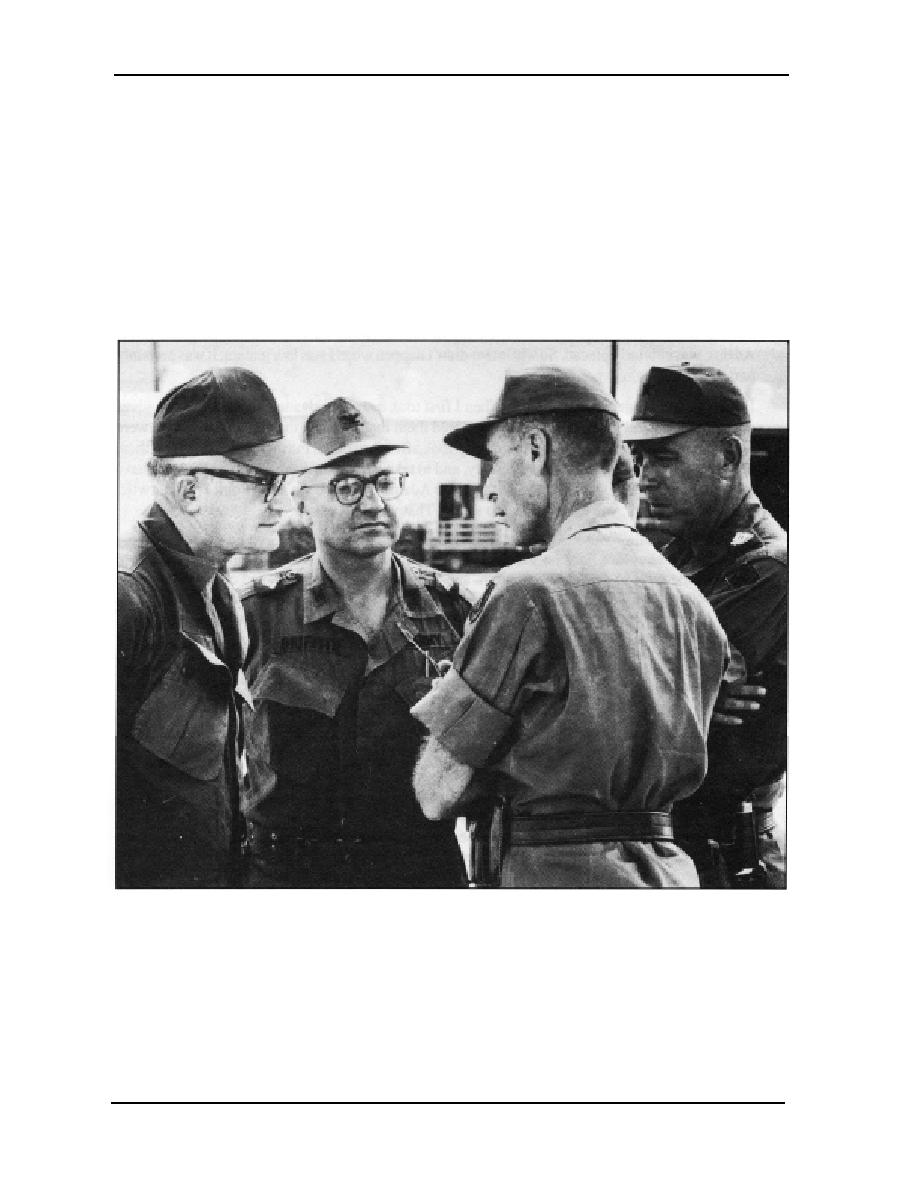
John W. Morris
The holidays were probably the most painful part for the troops, being so far from home under
such adverse circumstances. Because General Clarke came to Vietnam near the Christmas
holidays, my trip to Hawaii to be with Gerry never happened. I didn't get to see my wife during
the tour, but we did communicate by daily letters and frequent tapes.
General Parker was a prime player in my Vietnam experience. He, Carroll Le Tellier, and I were
doing a reconnaissance when we ran into a typhoon just off of Da Nang. We had to land our
helicopter in the "bowling alley," a flat area where there was continuous enemy activity. We
ended up convincing the pilot that we were sitting ducks in the middle of a shooting range. He
finally got the helicopter off the ground and up to an artillery outpost called "Los Banyos." The
wind was blowing so hard that the pilot said he wouldn't shut down the chopper for fear the wind
would ruin the rotor. When the chopper ran out of gas that is exactly what happened.
Secretary of the Army Stanley Resor (left) with Engineer officers Colonel Harry Griffith, Major
General David S. Parker, and Brigadier General John W. Morris in South Vietnam in 1970.
We were finally rescued in a half-track by Captain Ronald Bartek [West Point, 1966] to end a wet
and miserable day. General Parker, all his life, felt that we almost did him in on that day.
My most vivid memory relates to an event after I left. Prior to departure, I had laid on an
orientation program for my successor-General [Henry] Shrader. When he arrived, I soon
departed, and after a couple of false starts in Saigon got back to the United States as scheduled
73



 Previous Page
Previous Page
